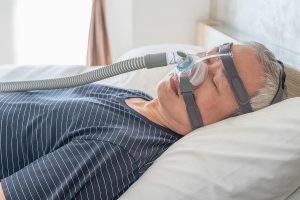The coronavirus pandemic silenced choirs around the globe, but researchers in Sweden say it may be safe to sing with others if you take precautions.
“There are many reports about the spreading of COVID-19 in connection with choirs singing. Therefore, different restrictions have been introduced all over the world to make singing safer,” said Jakob Löndahl, an associate professor of aerosol technology at Lund University.
“So far, however, there has been no scientific investigation of the amount of aerosol particles and larger droplets that we actually exhale when we sing,” he said in a university news release.
Löndahl and his colleagues wanted to gain a better understanding of the amount of aerosols (small airborne particles), droplets and coronavirus emitted when people sing. They conducted tests with 12 healthy singers and two people with confirmed COVID-19. Seven of the participants were professional opera singers.
The study found that singing — particularly loud and consonant-rich singing — spreads a lot of aerosol particles and droplets into the surrounding air.
According to Malin Alsved, a doctoral student of aerosol technology at the university, “Some droplets are so large that they only move a few decimeters from the mouth before they fall, whereas others are smaller and may continue to hover for minutes. In particular, the enunciation of consonants releases very large droplets and the letters B and P stand out as the biggest aerosol spreaders.”
The researchers also measured virus in the air close to two people who sang when they had COVID-19.
“Their air samples contained no detectable amount of virus, but the viral load can vary in different parts of the airways and between different people. Accordingly, aerosols from a person with COVID-19 may still entail a risk of infection when singing,” Alsved said.
The findings suggest it’s still safe to sing with others if you follow social distancing and good hygiene in a space with good ventilation. Face masks can also help.
Löndahl said, “When the singers were wearing a simple face mask this caught most of the aerosols and droplets, and the levels were comparable with ordinary speech. Singing does not need to be silenced, but presently it should be done with appropriate measures to reduce the risk of spreading infection.”
More information
The U.S. Centers for Disease Control and Prevention has more on COVID-19.
Source: HealthDay
Copyright © 2026 HealthDay. All rights reserved.










-300x200.jpeg)






